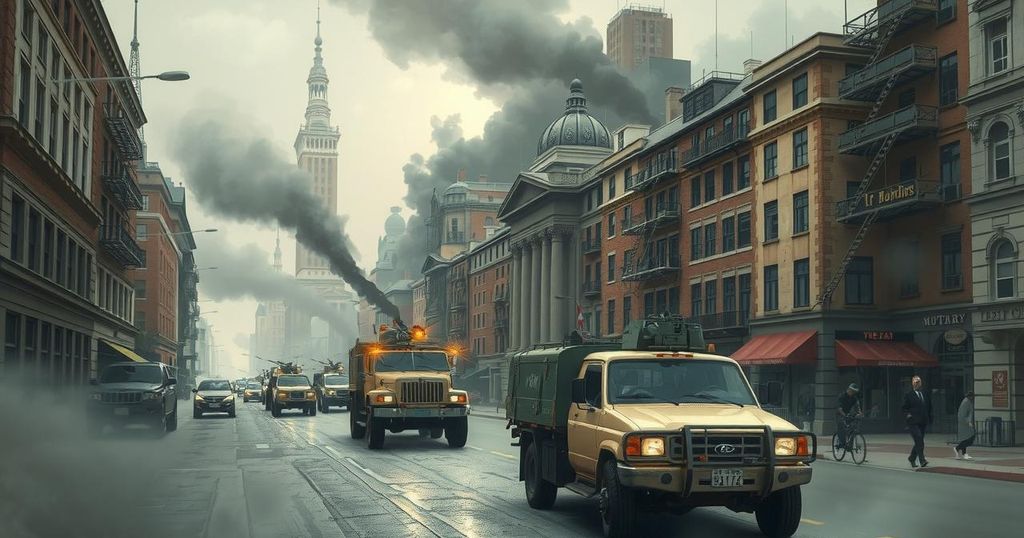Sudan’s Military Gains Ground in Capital Amid Ongoing Conflict
Recent military advances in Khartoum, including the capture of the presidential palace and strategic locations, indicate a significant shift in Sudan’s civil war. Despite these changes, the ongoing conflict with rival forces, particularly the R.S.F., suggests that an end to hostilities remains unlikely. The first visit by Western journalists in two years underscores the devastation wrought by the conflict.
A New York Times team, comprising both a reporter and a photographer, recently became the first Western journalists to enter central Khartoum since the civil conflict commenced two years prior. Their visit highlighted the extensive devastation inflicted upon the city as the war has unfolded.
On Sunday afternoon, soldiers congregated in the battle-damaged presidential palace, preparing to execute orders amidst the remnants of conflict. Armed with rifles and rocket launchers, they advanced towards the city center, determined to eradicate the last remaining pockets of resistance from opposing paramilitary forces.
Following the military’s recapture of the presidential palace on Friday, a significant shift occurred as they gained control over a substantial portion of central Khartoum. This development is anticipated to alter the trajectory of Sudan’s ongoing and devastating civil war. By that weekend, the military had successfully taken the Central Bank, the national intelligence headquarters, and the renowned Corinthia Hotel along the Nile.
The New York Times journalists’ visit, marking the first Western presence in the area since the outbreak of the war in April 2023, underscored the pivotal recent events. However, despite these changes, there appeared to be little anticipation for an imminent end to the conflict. “We will never leave our country to the mercenaries,” stated Mohamed Ibrahim, a special forces officer who referred to the rival paramilitary group, the Rapid Support Forces (R.S.F).
In summary, the recent military operations in Khartoum have significantly altered the landscape of Sudan’s civil war, with the army capturing key infrastructures such as the presidential palace and Central Bank. Nonetheless, the ongoing conflict with the R.S.F. suggests that resolution remains elusive. Reports from the field portray a scene of despair yet emphasize the soldiers’ determination to reclaim control. The visit by The New York Times journalists has provided critical insights, marking a pivotal moment in understanding the civil strife’s evolution and its impact on Sudanese society.
Original Source: www.nytimes.com




Post Comment